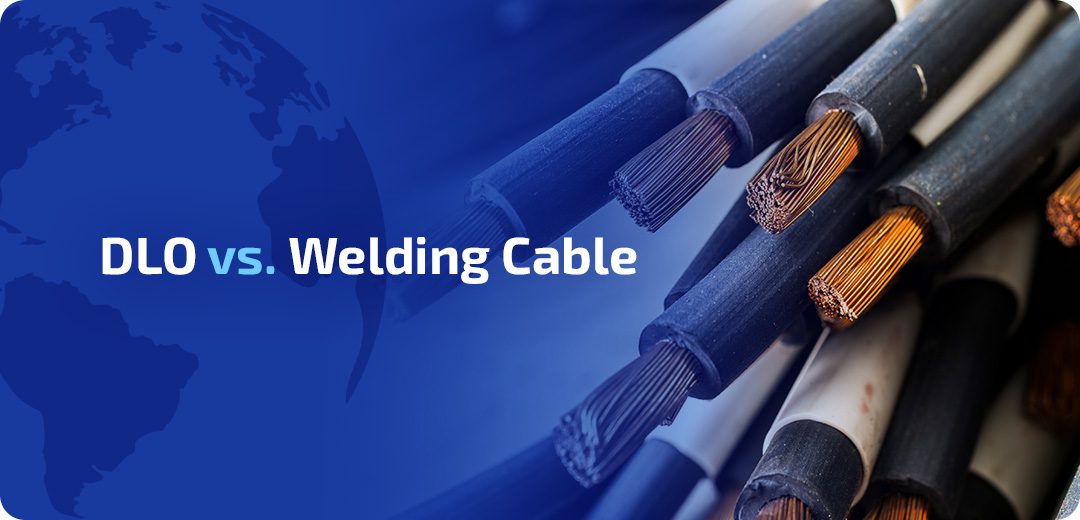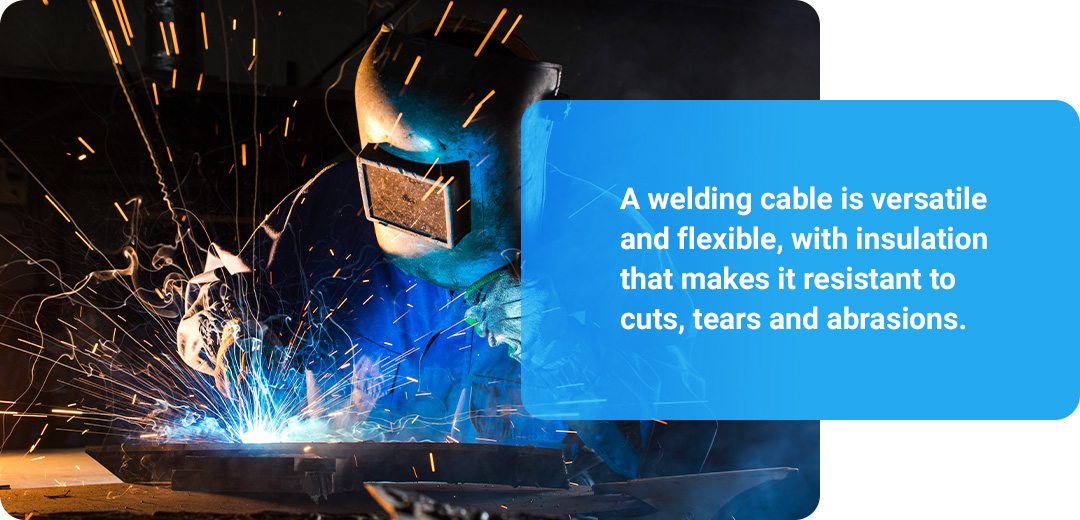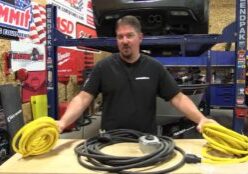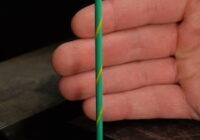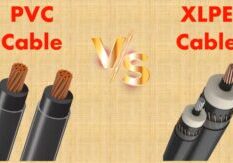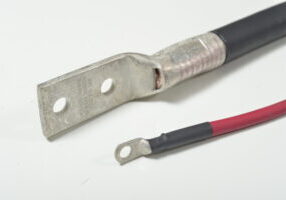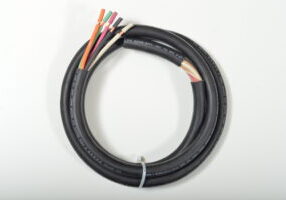
Aug 16, 2022
DLO vs. Welding Cable
Sometimes, our machines malfunction or break. When this happens, it’s essential to know what caused the problem and how you can fix it. In some cases, you may need to replace your DLO cable or welding cable.
Though you’ll often find DLO cables and welding cables in the same category, they have a few key differences in construction and usage. Both of these options are heavy-duty power cables, so it’s essential to understand and compare them to determine which will be the right tool for the job.
What Is a DLO Cable?
Diesel Locomotive Operations (DLO) cables are flexible, powerful single-conductor cables with two layers of rubber insulation to provide industrial protection. A DLO cable has a high voltage rating of 2,000 volts and four distinct layers:
- Copper strands: The DLO cable uses 24 American Wire Gauge (AWG) copper strands to make it flexible and conduct voltage. DLO cables are much more flexible than typical building or electrical wire, though they are a bit less flexible than stage lighting and welding cables.
- Tinned coating: DLO cables are unique due to the coating on their copper strands. While copper is highly conductive, it is also susceptible to erosion or oxidation. The tin coating protects the copper wire from oxidation and makes it more durable.
- EPR rubber insulation: A DLO cable’s first layer of insulation is EPR rubber insulation. The jacket must be durable and strong to endure the applications of a DLO cable. This jacket is flexible, moisture-resistant and can stand up to temperatures that range from extreme cold to extreme heat. Its durability makes it perfect for high-voltage and high-temperature applications.
- CPE rubber insulation: Since you may drag, run over, step on and catch your portable power cables in small areas, they must resist punctures in the insulation that would expose the copper strands. Another layer of CPE rubber insulation adds an extra layer of protection to the DLO. The extra insulation also makes the voltage rating higher than cables with one layer.
Applications
These cables are more common in industrial applications than in residential areas. You’ll primarily find DLO cables in applications related to:
- Shipyards
- Telecom
- Cranes
- Motor leads
- Gas and oil rigs
- Mining equipment
- Power supply systems
- Diesel-powered train locomotives
A DLO cable’s high voltage rating allows this tool to handle high-voltage, heavy-duty applications in both dry and wet environments.
Approvals
Our DLO products, including DLO 6 AWG, DLO 262 MCM and DLO 4 AWG, come with MSHA, CSA and UL approvals.
DLO cables have a stamped jacket certifying that the Mine Safety and Health Administration (MSHA), Canadian Standard Association (CSA) and Underwriters Laboratories (UL) have tested and approved their ratings. Passing inspection for industrial applications is challenging without these third-party approvals.
What Is a Welding Cable?
Welding cables are portable cords that have become the most popular form of cable within the welding community. Compared to other types of cable, welding cables are widely considered the most versatile and portable. Features of a welding cable include interior metal, insulation and coating and volt capacity:
- Interior metal: The conductors in welding cables are copper, a durable and flexible metal for conducting electricity. Copper is also able to withstand high heat. Running a current through these cables heats the copper and gives the welding machine the heat needed to weld. At WesBell Electronics, our welding cables use 30 AWG bare copper strands.
- Insulation and coating: Welding cables include four different types of insulation material or coating, including PVC, chlorinated polyethylene (CPE), ethylene propylene diene monomer (EPDM) and neoprene. EPDM and neoprene are the most common materials for welding cables. The coatings are resistant to water, abrasions, moisture and harsh weather. PVC is stiffer, which makes it more durable and resistant to wire bends, tears and cuts.
- Volt capacity: A welding cable has a volt capacity of 600 and can handle various welding tasks for direct currents (DC) and alternating currents (AC).
We offer our welding cables in a wide range of sizes.
Applications
A welding cable is versatile and flexible, with insulation that makes it resistant to cuts, tears and abrasions. Rather than having separate materials, the jacket on a welding cable functions as insulation, making these cables useful in a variety of applications, such as:
- Automotive starts
- Battery grounds
- Power supply
- Marine needs
- Welding
What Are the Differences Between DLO and Welding Cables?
You can use DLO and welding cables in similar applications, but you’ll need to consider the differences that set them apart to determine which is the right for your job.
- Ratings: DLO cables come with dual ratings that welding cables don’t offer, including CSA R90 and UL RHH/RHW-2 approvals.
- Features: While both cables feature stranded copper conductors, the conductor in a welding cable is bare instead of tinned. Welding cables also have higher strand counts, which makes a welding cable more flexible but harder to terminate. The tinned copper conductors of a DLO offer extra corrosion resistance protection, even in challenging environmental conditions.
- Colors: Welding cables typically have a black or red jacket, but they can be available in other colors. An orange jacket indicates that the cable has an especially durable cable construction. You can only get Diesel Locomotive cables in black.
To decide between a DLO and a welding cable, consider the requirements of your application. A DLO cable features insulation, tinned conductors and a jacket, which makes it suitable for industrial and heavy-duty applications. A welding cable has a single jacket and finely stranded conductors, making it suitable for cramped spaces. If you are still unsure which might be the right tool for your application, turn to the experts at WesBell Electronics.
Browse Welding Cables and DLOs From WesBell Electronics
At WesBell Electronics, we can provide you with custom cables to meet your specifications. We can supply you with bulk cable, wire and tubing products for your custom order. We also offer services like cord preparation and wire twisting to save you time and money — we cut, strip and terminate thousands of wires every day. Even if you make your own cable assemblies, we may be able to save you time and money by taking over the process.
If you are interested in our products and services, browse our DLOs and welding cables or contact us today to learn more about what we can do for you.

